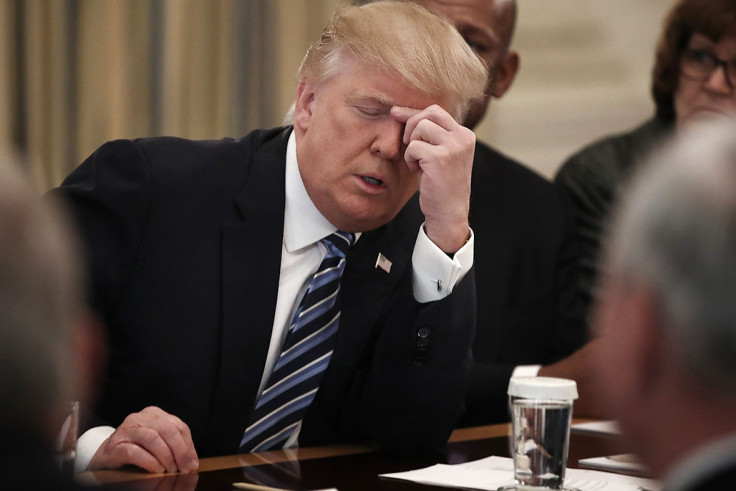How federal judges are able to rule against Donald Trump's Muslim ban
Lawmakers argue it's their job to give due process under US law and review executive orders.

On 9 February, three federal judges in San Francisco ruled to suspend US President Donald Trump's executive order banning travellers from seven Muslim nations from entering the US.
Trump has argued that he, and he alone, can set immigration policy. But the panel's 29-page-long judgement argues there were "significant constitutional questions" tied up in the case that go beyond the president's powers.
The judgement contains much more too, including arguments about whether judges can legally review the president's executive orders to see if they contravene the American constitution, and whether people should be afforded due process under US law.
Trump's order sought to ban people from the majority Muslim nations of Iran, Iraq, Libya, Somalia, Sudan, Syria and Yemen from entering the US for 90 days and halting immigration for four months.
The ban is being suspended while a case brought by Washington and Minnesota against Trump's executive order passes through the US courts. The judges ruled unanimously against Trump's appeal to have it reinstated. Read more below about what they said.
Are the courts authorised to legally review an executive order by the president?
The Government argued that Trump's executive order couldn't be picked apart in court because the president has "unreviewable authority to suspend the admission of any class of aliens" on national security concerns, even if it potentially contravenes the constitution.
But "there is no precedent to support this claimed unreviewability, which runs contrary to the fundamental structure of our constitutional democracy," the judges said. "'It would indeed be ironic if, in the name of national defense, we would sanction the subversion of one of those liberties . . . which makes the defense of the Nation worthwhile," they quoted from a 1965 case.
Under US law everyone is afforded due process
The US government argued in court that the people affected by the executive order have no rights under amendments to the constitution protecting people from arbitrary denial of life, liberty, or property by the government.
"The Government has not shown that the executive order provides what due process requires, such as notice and a hearing prior to restricting an individual's ability to travel," the judges said. It cites that legal permanent residents and non-immigrant visa holders weren't given any notice of the ban, along with other foreigners in the country legally, such as students. The refugee process under federal law was also contravened, the judges said.
The White House attorney is not the president
Trump's executive order led to chaos at the border throughout the US when legal green card holding residents were deported and travellers with valid visas were left stranded. Afterward White House counsel Donald McGahn issued guidance on how the order should be interpreted. It made concessions for green card holders and allowed them into the US.
"However, we cannot rely upon the government's contention that the executive order no longer applies to lawful permanent residents," the judges said. "The White House counsel is not the president, and he is not known to be in the chain of command for any of the executive departments."
For the time being, the unanimous ruling of the judges means that citizens from the seven Muslim countries will continue to be able to travel to the US, despite Trump's executive order. It is now likely that the case is headed to the US Supreme Court.
© Copyright IBTimes 2025. All rights reserved.






















